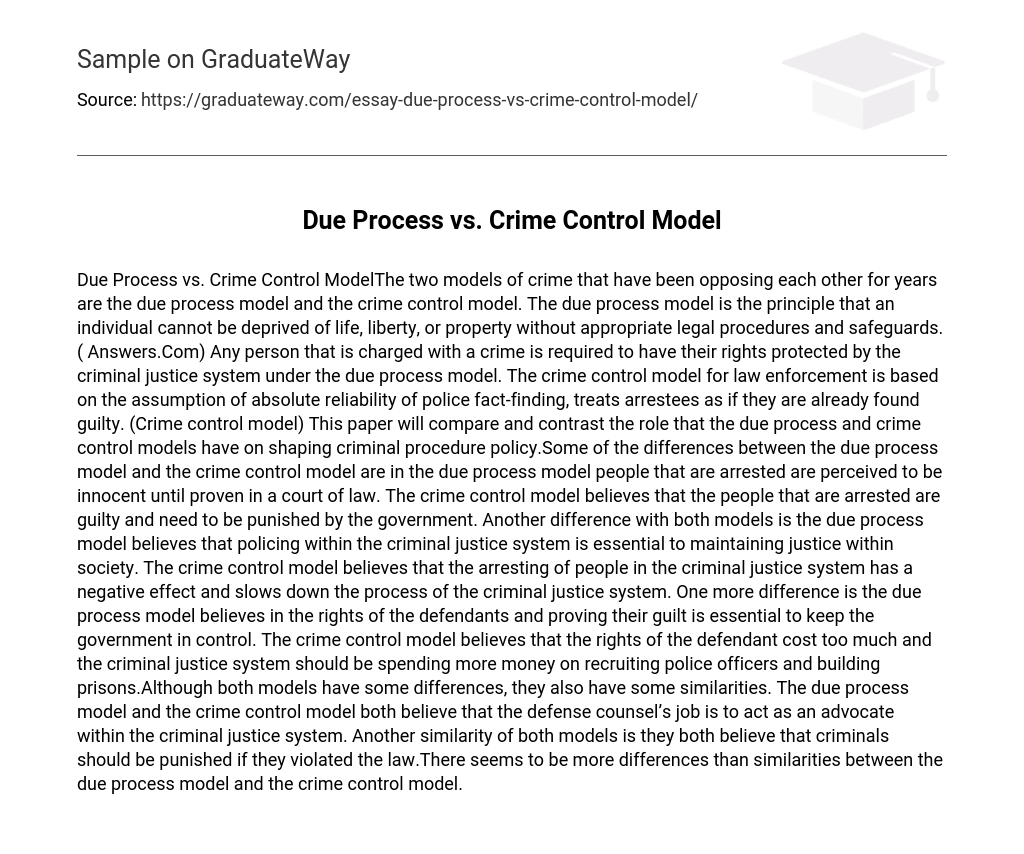The two models of crime, the due process model and the crime control model, have been in opposition for years. The due process model emphasizes that an individual’s life, liberty, or property cannot be taken away without proper legal procedures and protections (Answers.Com). Therefore, according to this model, it is crucial for the criminal justice system to safeguard the rights of anyone accused of a crime.
The law enforcement’s crime control model assumes the infallibility of police fact-finding and treats arrestees as if they are already guilty. This paper aims to compare and contrast the impact of the due process and crime control models on shaping criminal procedure policy. The due process model, in contrast, presumes individuals arrested as innocent until proven guilty in court. Conversely, the crime control model regards those arrested as guilty and deserving punishment by the government. Moreover, while emphasizing the crucial role of policing within the criminal justice system for maintaining societal justice, the due process model argues that arresting individuals within this system has a negative effect, leading to delays in overall proceedings.
The due process model and the crime control model have different beliefs. The due process model emphasizes the importance of defendants’ rights and considers proving their guilt as crucial for government control. On the other hand, the crime control model argues that the defendant’s rights are expensive and that investing in police recruitment and prison construction should be prioritized by the criminal justice system.
Despite these differences, both models agree on certain aspects. Both models acknowledge the role of defense counsel as an advocate within the criminal justice system. Additionally, both models support punishment for individuals who have violated the law.
In conclusion, while there are some similarities between the due process model and the crime control model, there are more differences.





